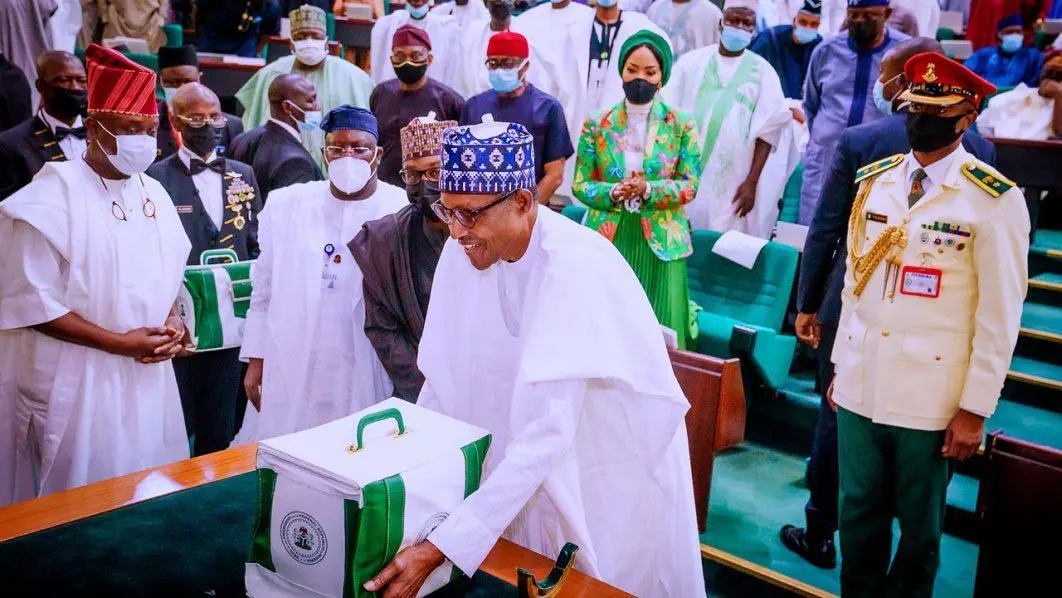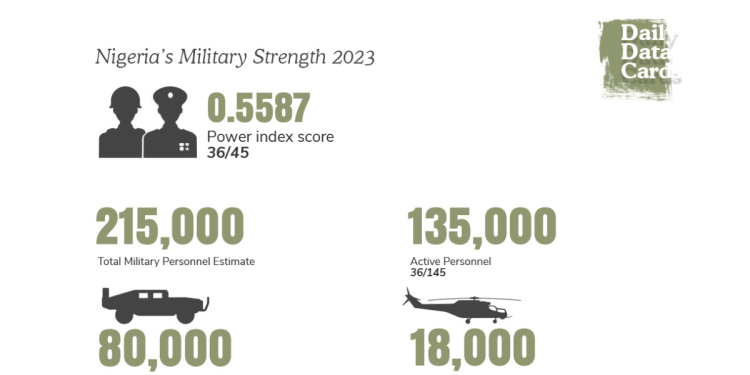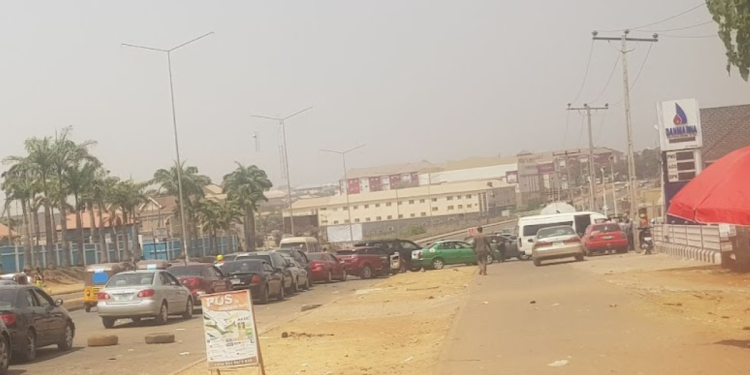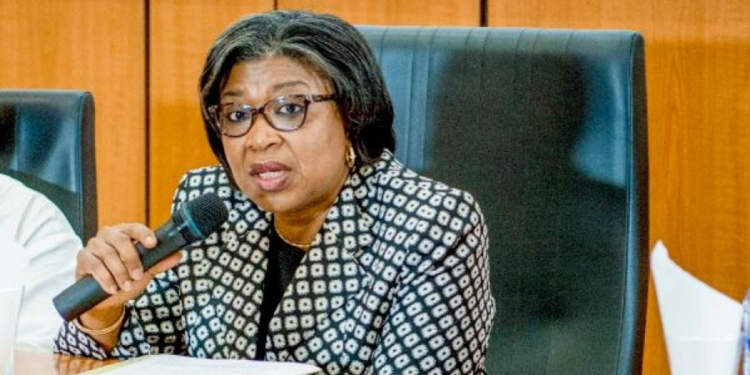President Muhammadu Buhari has signed the 2022 budget. The revised budget is N17.1 Trillion from an initial N16.4 Trillion presented to the National Assembly. The additional changes, driving up the budget figures, were done by the National Assembly.
Proposed Budget N16.391 Trillion Vs Revised, Approved N17.1 Trillion Budget
The details of the budget presented by the president included a total of N16.391 Trillion comprising N3.901 trillion debt service figure, N6.8 Trillion Recurrent expenditure and N4.8 Trillion capital expenditure.
In the revised, approved budget, debt servicing is reduced by 0.35% to N3.87trillion, perhaps the extra was put on the N6.9 trillion recurrent expenditure with a 1.4% increase from the president’s proposed figure. Capital expenditure saw the greatest increase in the approved budget with N5.4 Trillion, a 12.5% increase over the president’s initial proposal.
Proposed Budget Deficit Vs Approved Budget Deficit
The expected revenue of the government in the approved budget is N10.74 trillion, 7% higher than the initial 10.01 trillion proposed. However, the budget deficit increased by 1.6%, from N6.25 trillion in the proposed budget to over Six trillion naira (N6.38 trillion) in the approved budget.
The government projects it would generate N5.5 Trillion from the share of federation revenues, N2.2 Trillion from independent revenues, N195 billion from dividends, N63 billion from aids and grants while the net operating surplus of government-owned enterprises is expected to contribute N1.7 Trillion to the expected revenue.
Tax is also expected to play a prominent role in the government revenue drive, contributing a potential N113 billion projected revenue figure. Non-Tax revenue is put at N697 billion.
Proposed Vs Approved National Assembly Budgets
According to the revised and approved budget, the country’s legislature is taking a sum of N 139 billion for the fiscal year with the House of Representative budget put at N51 billion while the Senate will spend N33 billion in the financial year. This is a 3.7% increase over President Buhari’s national assembly proposed budget.
According to a report by Dataphyte, Nigeria’s Federal lawmakers are known for increasing the budget proposal. In the last eight years, the budget appropriation has had an average of 3.4% increase in the aggregate.
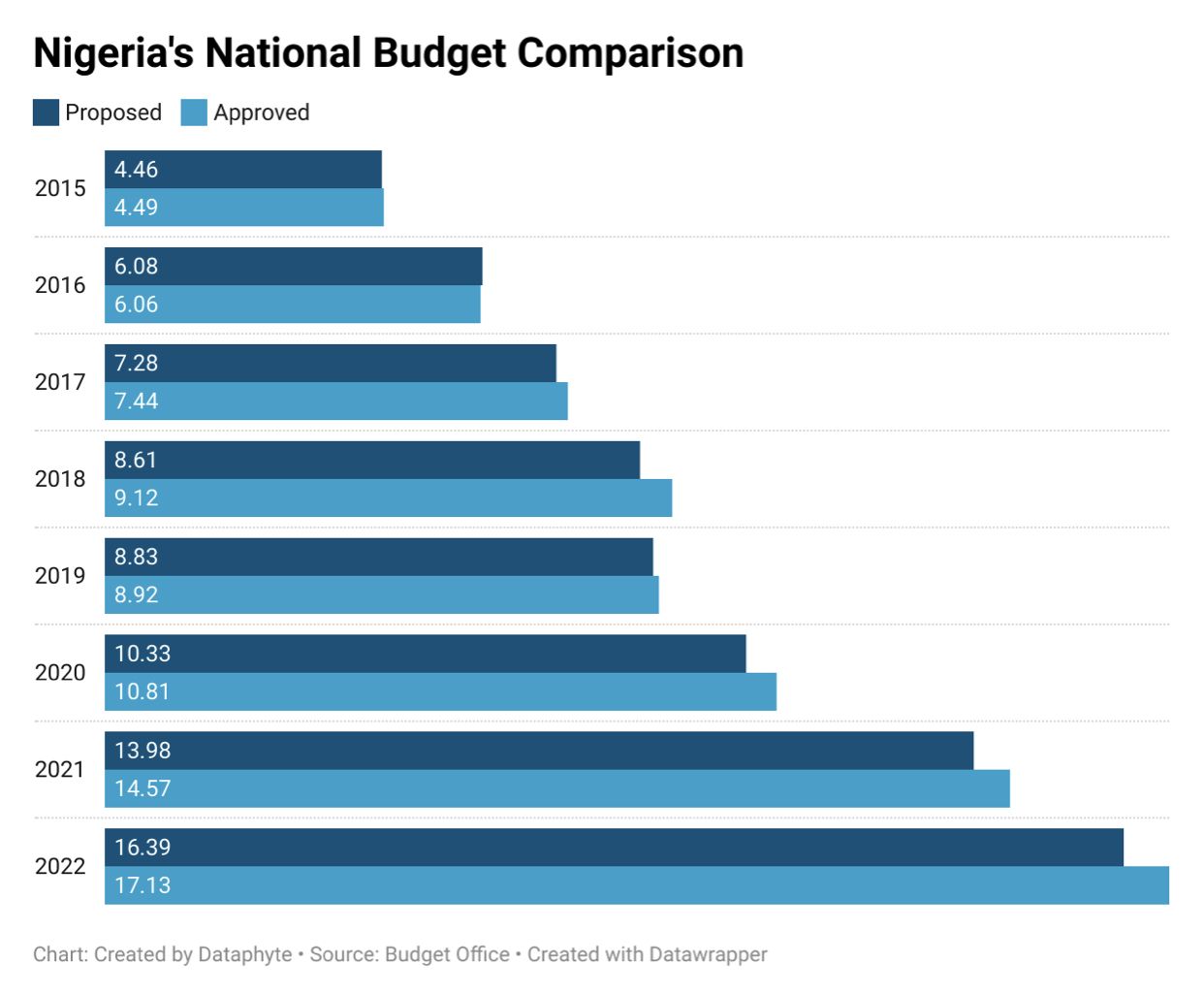
Nigeria’s Security, Intelligence Agencies, Ministry of Education and Health Takes 35% of Total Recurrent Expenditure
A Dataphyte review of the Appropriation Act has shown that Security and Intelligence Agencies in Nigeria, the Ministry of Education and Health account for approximately 35 percent (34.7%) of Nigeria’s total recurrent (non debt) expenditure. With the total Recurrent Expenditure (Non-debt) put at N6.90 Trillion.
Of this amount, the Security, Intelligence agencies, Ministry of Health and Education Account for at least N2.45 Trillion, representing 34.7% of the recurrent (non debt) expenditure.

Ministry of Works and Housing Take Top Spot in Capital Expenditure Budget
According to the details released, the Ministry of Works and Housing will spend N470 billion in 2022 on capital projects. The Ministry of Agriculture and Rural Development will spend N285 billion on Capital projects while Defence has a budget of N204 billion for capital projects.
Education and Health Ministries also feature prominently on the capital expenditure budget of the government with N159 billion and N130 billion respectively. The National Population Commission has a capital budget of N180 billion.
These six Ministries take N1.4 Trillion of the N2.7 Trillion allocated for capital expenditure of government Ministries. This represents 51.8% of the total capital expenditure for Ministries.
National Assembly Gifts itself N5 billion For Library Building, N300 million for E-Library
According to the details released, the National Assembly plans to spend Five billion Naira (N5 billion) on a Library project while another N300 million will be spent on e-Library projects.
Another sum of N 139 million is earmarked for spending on the NASS dashboard.
These projects are not contained in President Buhari’s proposed budget.

